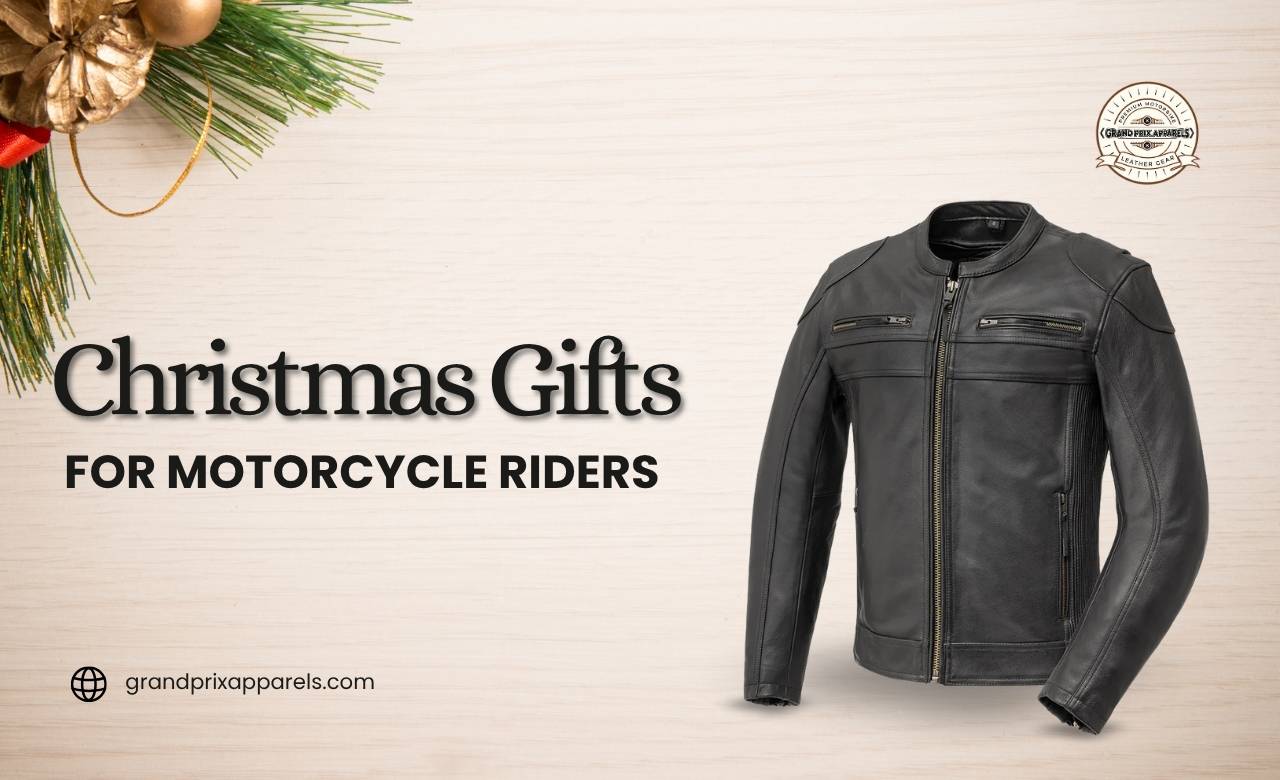
10 Christmas Gifts for Motorcycle Riders in 2025
Motorcycle riders live for the road, and Christmas is the perfect time to celebrate their passion. A well-chosen gift can add comfort, style, and convenience
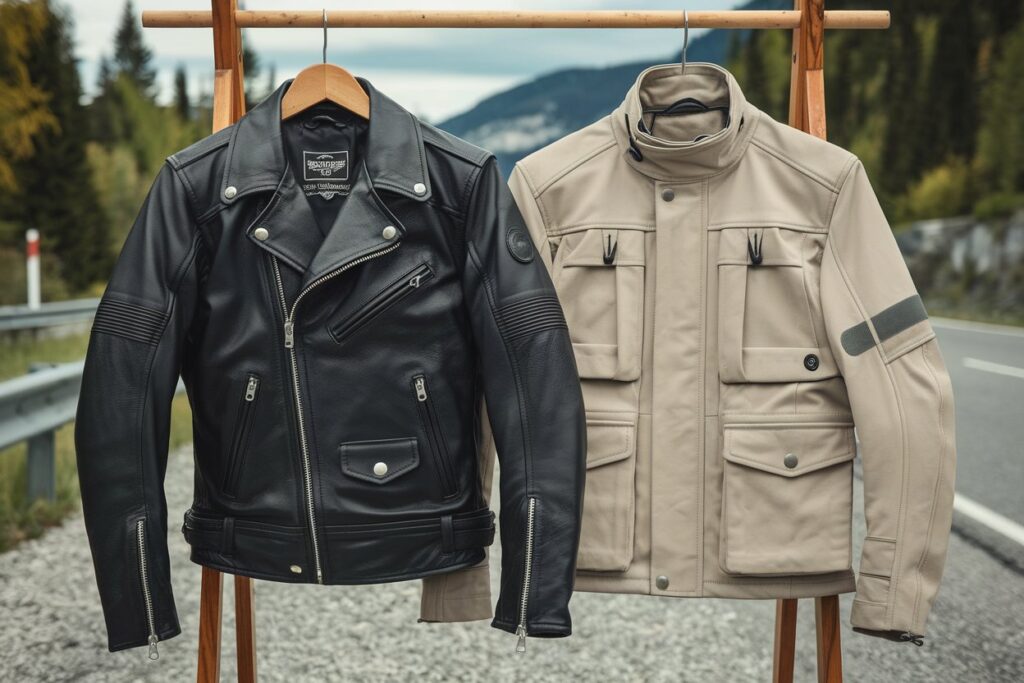
When preparing for a long motorcycle ride, choosing the right jacket is essential. Leather vs. textile motorcycle jackets are the two most popular options, each offering unique benefits and drawbacks.
Grand Prix Apparels will help you make an informed decision on in case leather or textile is best for your needs by exploring the advantages and disadvantages of each type in terms of protection, comfort, durability, and overall performance.
| Feature | Leather Jacket | Textile Jacket |
|---|---|---|
| Protection | Superior abrasion resistance, ideal for high speeds | Lightweight, water-resistant, and often armored |
| Comfort and Fit | Offers a snug fit, stretches with use | Typically, more breathable and versatile in the weather |
| Durability | Long-lasting if properly maintained | Durable but may show wear in harsh conditions |
| Weather Resistance | Less water-resistant, can get heavy when wet | Typically waterproof and suitable for varied climates |
| Price | Higher initial cost | Often more affordable |
Protection is a critical factor when selecting a motorcycle jacket, especially for long rides. Here’s how leather vs. textile jackets compare:
Comfort is essential on long rides, as discomfort can lead to distraction and fatigue. Let’s look at the comfort and fit offered by each jacket type:
| Jacket Type | Comfort Advantages | Comfort Drawbacks |
|---|---|---|
| Leather | Breaks in over time, molding to the rider’s body | Can feel heavy, especially in warmer climates |
| Textile | Lightweight and breathable, with adjustable features | May lack the snug fit and warmth of leather |
Both leather vs. textile jackets are durable, but their longevity depends on the care and type of material used:
Weather resistance is another important factor, especially for riders who face varied weather conditions on long rides.
| Feature | Leather Jacket | Textile Jacket |
|---|---|---|
| Water Resistance | Typically, low water can damage untreated leather | Generally waterproof and designed for wet conditions |
| Heat Insulation | Provides insulation in cooler weather | Offers breathability and cooling in warmer weather |
For many riders, the style of a motorcycle jacket is just as important as its functionality:
Price can be a deciding factor for many riders. Here’s a general comparison:
| Jacket Type | Average Price Range |
|---|---|
| Leather | Higher initial cost, long-term investment |
| Textile | More affordable, with a range of budget options |
The choice between leather and textile motorcycle jackets depends on personal preference and riding needs. If you prioritize classic style, abrasion resistance, and long-term durability, leather may be the best option. On the other hand, if you value versatility, affordability, and weather resistance, textile jackets are a great choice for long rides.
Textile jackets generally perform better in extreme weather conditions. They are designed with breathability for hot weather and often include waterproof layers for rain and removable liners for insulation in cold conditions. Leather jackets can be insulated but may not be suitable for heavy rain or extreme heat.
Yes, leather jackets do require more maintenance. Leather needs to be conditioned regularly to prevent cracking and drying, especially if exposed to rain or sunlight. Textile jackets are generally easier to maintain and can often be machine-washed.
Textile jackets can be just as safe as leather jackets, especially if they have built-in armor in key impact areas. While leather is more abrasion-resistant, textile materials like Kevlar or Cordura are designed to provide good protection and meet safety standards for motorcycle riding
If you’re riding in both urban areas and on highways, a textile jacket might offer more versatility due to its lighter weight, flexibility, and typically better weather resistance. For urban rides, where speeds are lower, textile jackets can be more comfortable, while on highways, some riders prefer leather for its added abrasion protection. However, many modern textile jackets offer comparable protection with armor in key areas, making them a practical choice for mixed riding environments.
Yes, armor can often be added to leather jackets if they have pockets designed for protective inserts, which is common in many modern motorcycle jackets. If your jacket lacks these pockets, aftermarket armor can sometimes be integrated through alterations, though it’s best to consult a professional for optimal safety and comfort. Textile jackets, however, usually come pre-fitted with armor or offer easy replacement options for their protective padding.
Leather jackets can be worn in summer, but they may feel hot due to their thickness and lack of ventilation. Some leather jackets come with perforated panels for breathability, but textile jackets are generally more comfortable in hot weather due to their lighter, breathable design.

Motorcycle riders live for the road, and Christmas is the perfect time to celebrate their passion. A well-chosen gift can add comfort, style, and convenience
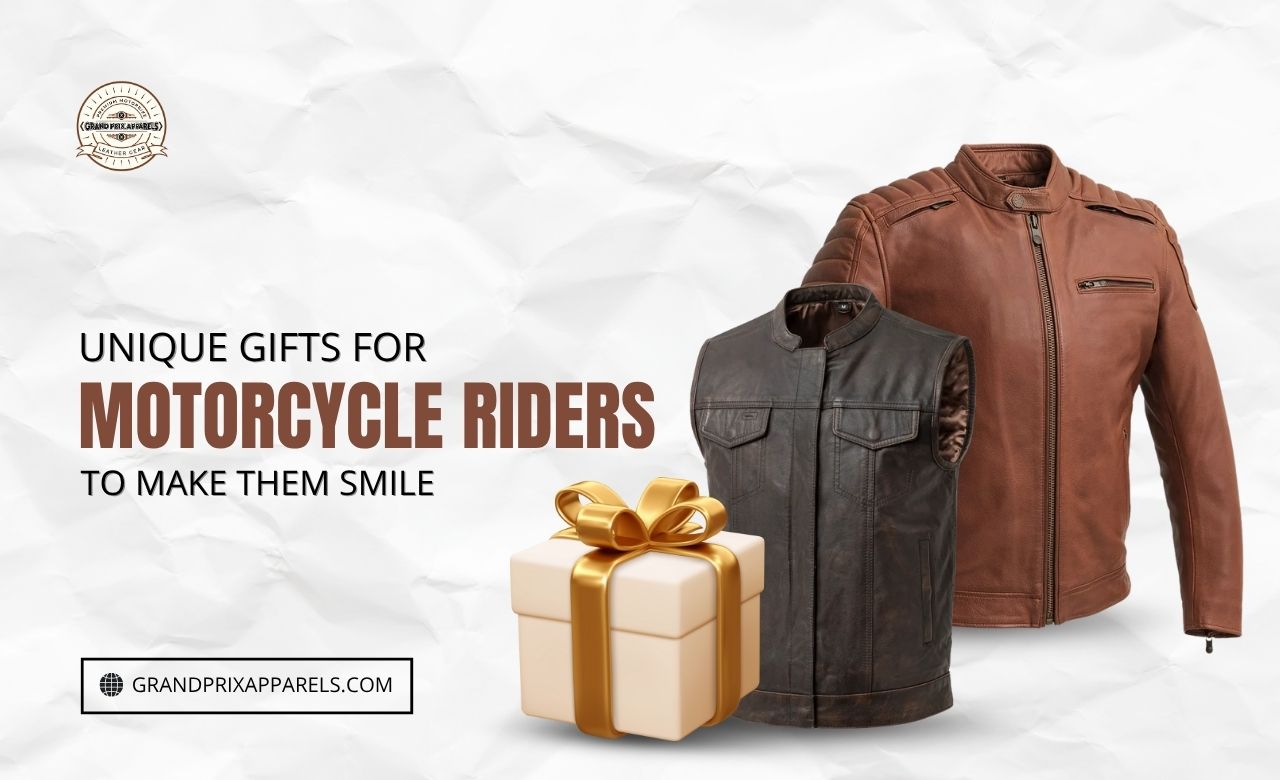
Motorcycle riders appreciate gifts that resonate with their passion, add value to their rides, and offer something distinctive. The right pick strikes a balance between
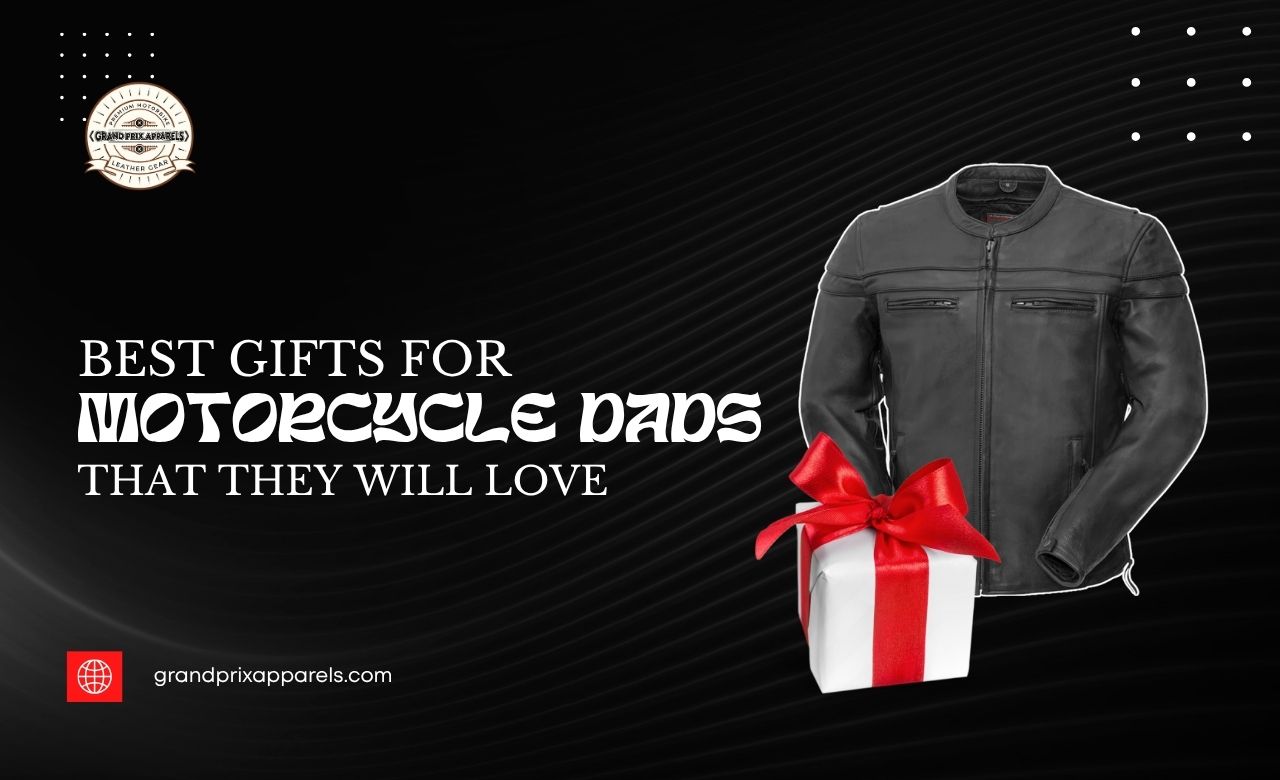
Motorcycle dads are passionate riders. They thrive on the open road, love the sound of the engine, and enjoy the thrill of every ride. If
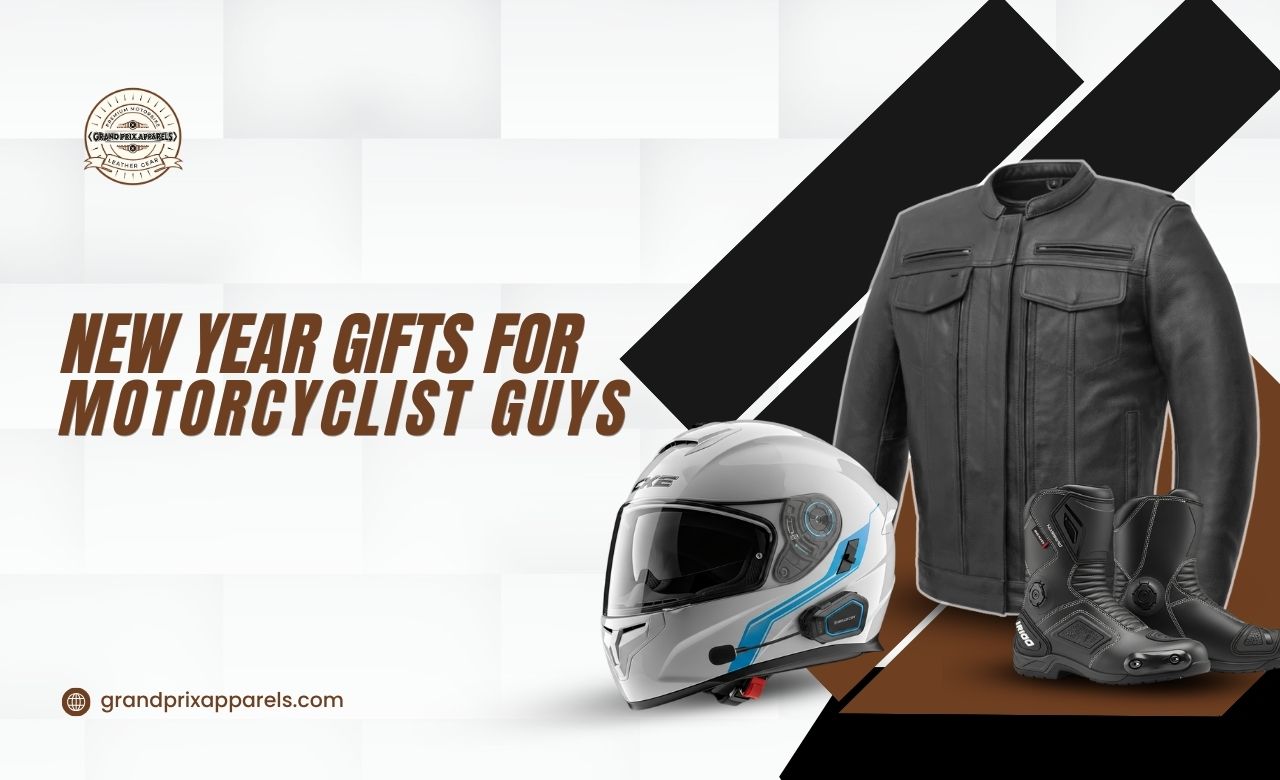
The New Year is the perfect time to surprise the biker in your life with a gift that blends excitement, purpose, and lasting value. Riders
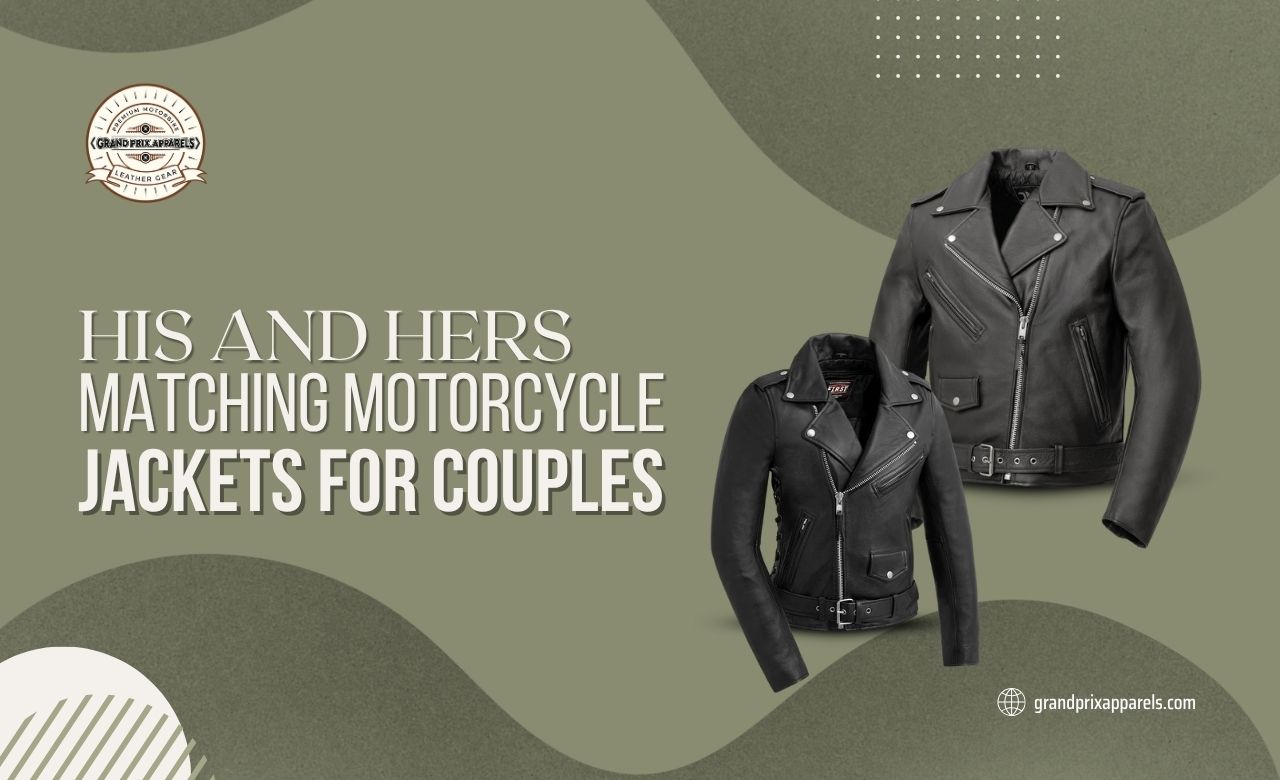
Riding together is more than just a hobby; it’s a way to bond, explore, and create memories on the open road. Matching motorcycle jackets are
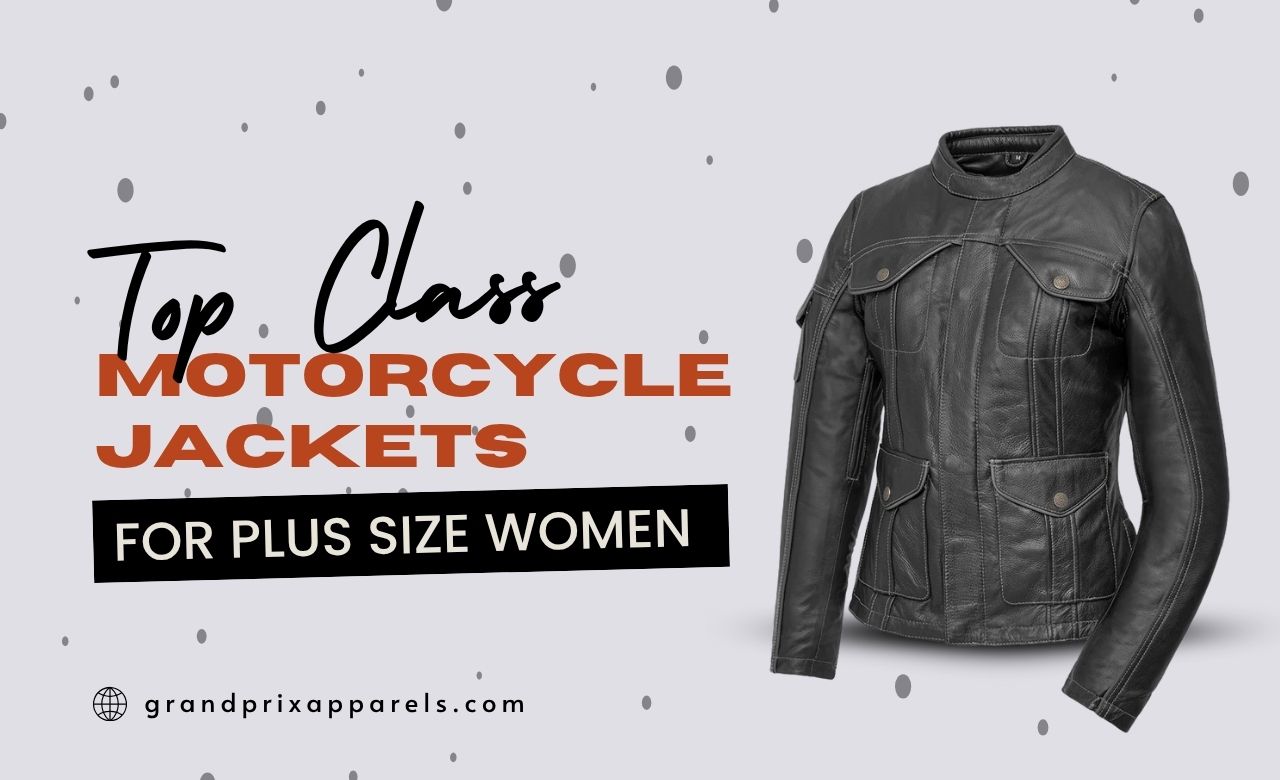
Every rider deserves gear that fits well, looks great, and feels comfortable, no matter the size. For plus-size women riders, finding the perfect motorcycle jacket
70 Pitman Ave, Fords, New Jersey, US
info[at]grandprixapparels.com
custom[at]grandprixapparels.com

Proin ullamcorper pretium orci donec necscele risqueleoam massa dolor imper dietnec consequata congue idsem maecenas malesuada faucibus finibus.
Uluwatu Jimbaran ST, 1919 - Bali, Indonesia
+62 212-345-321
deva@mail.com